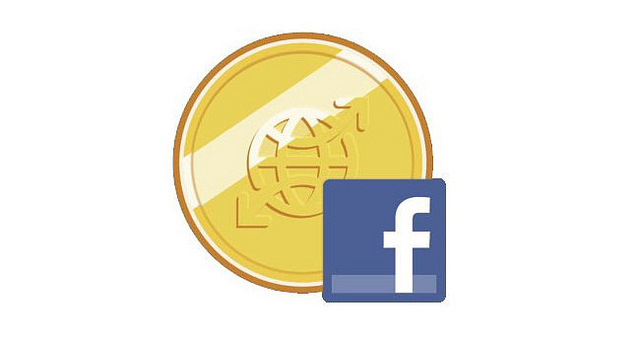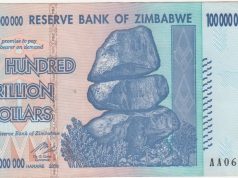Will Bitcoin Revolutionize Modern Loyalty Programs?
Bitcoin — the buzzy virtual currency that’s focused on privacy — continues to gain major traction. For some time you’ve been able to pay for games (or a hitman), invest your earnings and speculate on Bitcoins. In recent days, it’s become possible to use the world’s first Bitcoin ATM and pay your employees in Bitcoins. In short, Bitcoin is angling to be the first broadly accepted virtual currency not issued by a nation-state.
I’ve long argued that this is a role the major loyalty and virtual gaming programs should have taken. United, American, Zynga and many of the credit card issuers are all members of the 100 million + club — making them among the 15 largest “nations” in the world if measured by population, and with greater economic activity than the bottom 50% of countries combined. If their point systems were freely convertible, stable and transparent, they would undoubtedly overtake many of the smaller global currencies for trade and commerce.
The opportunity however is even bigger than that. Today, a vast majority of online and offline retailers have no loyalty program to speak of. From the smallest cafe to the some of the biggest global brands, loyalty systems are desired but are just ideas on a shelf. They are perceived as being too expensive, cookie-cutter or ineffective. The gamification industry is hard at work trying to solve those issues, and our technology platforms (e.g. Badgeville, BunchBall, BigDoor, Cynergy) are helping to make loyalty low-cost, scalable, bespoke and engaging. But a universal currency remains elusive — and a major stumbling block for many programs.

Image by the_chivalrous
The issue is about rewards. If every company issues its own virtual currency for loyalty and engagement, and users (rightfully) expect to be able to redeem that currency for rewards, it means each new loyalty program must develop its own rewards system. Even with the best gamification services, that is an expensive proposition from a design, maintenance and legal perspective.
But if there was a virtual currency that could be easily integrated with loyalty — one that was broadly accepted, readily convertible, stable and cheap to access, new loyalty entrants could quickly scale their reward systems. While major travel, gaming and financial loyalty programs are content to live in their walled gardens, strictly controlling access to the currencies and ruling their virtual economies with a tight fist, I predict Bitcoin is quietly going to eat their lunch.
Just as with global foreign exchange markets, users will flock to the system that is open, transparent and (fairly) well-run. That’s the reason why cattle merchants in rural Zimbabwe buy and sell in US dollars, just the same as Boeing prices its planes in the greenback.

Image by Smath
The same is true of virtual currencies, and Bitcoin stands to grow tremendously as private industry ramps up its use in engagement, loyalty and commerce. As millions of companies around the world deploy their first loyalty programs, it seems likely that Bitcoin will be their first convertible currency, vaulting it quickly to one of the world’s dominant means of exchange. Broadening its use to loyalty commerce should also provide some stability against legal and speculator challenges.
That’s why I’m especially excited to announce the addition of Patrick Murck, General Counsel of the Bitcoin Foundation as one of our surprise featured speakers for GSummit (April 16-18). Patrick will discuss how Bitcoin aims to transform the engagement economy, and how its unique attributes will make it a key “coin of the realm” for the coming loyalty 3.0 boom. Be sure to join us live in San Francisco for this and 70+ other lectures that will shape the future of engagement.
Other loyalty currencies ignore this trend at their peril — and would be wise to learn their history. The French Franc and currencies of Greece, Persia and China were once global powers, used in trade throughout their far-flung empires. As the markets evolved to value openness, convertibility and stability, their fortunes declined in lockstep, causing domestic inflation even within their walled gardens. The same will happen to United, American, Zynga, Chase, Amex and others if they don’t follow Bitcoin’s lead. Not only will they miss out on new opportunities, but consumers will be less inclined to collect their points if they are perceived as less flexible, valuable and stable than the alternative. Today they are unassailable, but within 2 years, their economies will be in turmoil.
This is a once-in-a-lifetime opportunity to understand and help shape Bitcoin’s impact on commerce and marketing. More than ever, the engagement industry is at the forefront of helping drive meaningful interactions for consumers and employees. Our embrace of this new and exciting tool promises unlimited opportunity for the marketplace and the world.
Cover image by Adam Crowe









http://www.theverge.com/2013/4/4/4181726/bitcoin-exchange-mt-gox-says-technical-problems-are-ddos
As leaders in this field have pointed out, one of the big issues is people who will try to game the game.
Found some more background on the bitcoin experiment here: http://www.newyorker.com/online/blogs/elements/2013/04/the-future-of-bitcoin.html
One more link for those interested in a broad view: https://medium.com/money-banking/2b5ef79482cb?utm_source=newsletter9&utm_medium=email&utm_campaign=subB_short
This article completely mistakes what Bitcoin is and what it can be. It is not a virtual currency in the sense that Facebook’s failed “Facebook Credits” or Zyngas “zCoins” are virtual currencies. Bitcoin is a very real currency most historically similar to gold and silver. Bitcoins are “mined” by computer algorithms that uncover individual Bitcoins out of a limited hypothetical amount. One company or one organization does not own the monopoly on creating them or managing them. Instead, any computer can “mine” them, although it gets more difficult as the theoretical limit approaches. At this stage of Bitcoin development, the cost to mine a new coin exceeds the cost of the energy needed to run the computer cycle.
This results in a currency that is free from the macroeconomic levers that governments commonly use, and it is a pure tradable currency that can not be created through policy tools like quantitative easing. A libertarian’s dream.
To restate my original point, Bitcoin is a real currency, and to say that it is the future of engagement and loyalty is to say that the future of engagement and loyalty is bribing people with cold, hard cash.
No currency is ‘free’ from manipulation.. All a government would have to do is start buying Bitcoins enmasse and the market would flex their direction. The Hunts did this with Silver and got in trouble for it..
Another major weighs in. Be sure to read the comments section as well. Very interesting stuff! http://www.forbes.com/sites/pascalemmanuelgobry/2013/04/05/krugman-baby-sitting-co-op-bitcoin/